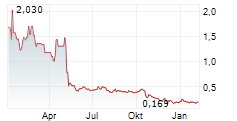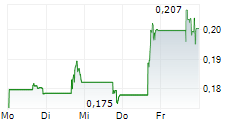
ROCKVILLE, Md., May 23, 2024 (GLOBE NEWSWIRE) -- Theriva Biologics (NYSE American: TOVX), a diversified clinical-stage company developing therapeutics designed to treat cancer and related diseases in areas of high unmet need, today announced that the U.S. Food and Drug Administration (FDA) has granted Fast Track Designation (FTD) to lead clinical candidate VCN-01 in combination with gemcitabine and nab-paclitaxel to improve progression-free survival and overall survival in patients with metastatic pancreatic adenocarcinoma. In VIRAGE, the ongoing multinational Phase 2b clinical study, intravenous VCN-01 is being evaluated in combination with standard-of-care (SoC) chemotherapy (gemcitabine/nab-paclitaxel) as a first line therapy for patients with pancreatic ductal adenocarcinoma (PDAC). Previously, the FDA granted orphan drug designation to VCN-01 for treatment of PDAC.
"The FDA's decision to grant FTD to VCN-01 highlights the urgent need for new treatment options for PDAC, which accounts for the 4th highest cause of cancer-associated deaths in the US and Europe," said Steven A. Shallcross, Chief Executive Officer of Theriva Biologics. "VIRAGE, our Phase 2b trial evaluating VCN-01 in metastatic PDAC continues to progress, with enrollment expected to complete in the third quarter of 2024. FTD is an important step that furthers our ability to expedite the review of, and build upon the compelling clinical data that underscores VCN-01's multiple modes of action and therapeutic potential in combination with chemotherapy or immunotherapy. We will continue to deliver on our mission to advance new therapeutic options for these patients."
FTD is designed to help treatments reach patients faster by facilitating the development and expediting the review of therapies with potential to treat serious conditions and fill an unmet medical need. Benefits of FTD to programs include early and frequent interactions with the FDA during the clinical development process and, if relevant criteria are met, the FDA may also review portions of a marketing application before the sponsor submits the complete application.
About Pancreatic Ductal Adenocarcinoma
Cancer of the pancreas consists of two main histological types: cancer that arises from the ductal (exocrine) cells of the pancreas or, much less often, cancers may arise from the endocrine compartment of the pancreas. Pancreatic ductal adenocarcinoma ("PDAC") accounts for more than 90% of all pancreatic tumors. It can be located either in the head of the pancreas or in the bodytail. Pancreatic cancer usually metastasizes to the liver and peritoneum. Other less common metastatic sites are the lungs, brain, kidney and bone. In its early stages, pancreatic cancer does not typically result in any characteristic symptoms. In many instances, progressive abdominal pain is the first symptom. Therefore, in most cases, pancreatic cancer is diagnosed in its late stages (locally advanced non-metastatic or metastatic stage of the disease) when surgical resection and possibly curative treatment is not possible. It is generally assumed that only 10% of cases are resectable at presentation, whereas 30-40% of patients are diagnosed at local advanced/unresectable stage and 50-60% present with distant metastases.
About VCN-01
VCN-01 is a systemically administered oncolytic adenovirus designed to selectively and aggressively replicate within tumor cells and degrade the tumor stroma that serves as a significant physical and immunosuppressive barrier to cancer treatment. This unique mode-of-action enables VCN-01 to exert multiple antitumor effects by (i) selectively infecting and lysing tumor cells; (ii) enhancing the access and perfusion of co-administered chemotherapy products; and (iii) increasing tumor immunogenicity and exposing the tumor to the patient's immune system and co-administered immunotherapy products. Systemic administration enables VCN-01 to exert its actions on both the primary tumor and metastases. VCN-01 has been administered to over 80 patients in Phase 1 and investigator-sponsored clinical trials of different cancers, including PDAC (in combination with chemotherapy), head and neck squamous cell carcinoma (with an immune checkpoint inhibitor), ovarian cancer (with CAR-T cell therapy), colorectal cancer, and retinoblastoma (by intravitreal injection). More information on these clinical trials is available at Clinicaltrials.gov.
About Theriva Biologics, Inc.
Theriva Biologics (NYSE American: TOVX), is a diversified clinical-stage company developing therapeutics designed to treat cancer and related diseases in areas of high unmet need. The Company is advancing a new oncolytic adenovirus platform designed for intravenous (IV), intravitreal and antitumoral delivery to trigger tumor cell death, improve access of co-administered cancer therapies to the tumor, and promote a robust and sustained anti-tumor response by the patient's immune system. The Company's lead candidates are: (1) VCN-01, an oncolytic adenovirus designed to replicate selectively and aggressively within tumor cells, and to degrade the tumor stroma barrier that serves as a significant physical and immunosuppressive barrier to cancer treatment; (2) SYN-004 (ribaxamase) which is designed to degrade certain commonly used IV beta-lactam antibiotics within the gastrointestinal (GI) tract to prevent microbiome damage, thereby limiting overgrowth of pathogenic organisms such as VRE (vancomycin resistant Enterococci) and reducing the incidence and severity of acute graft-versus-host-disease (aGVHD) in allogeneic hematopoietic cell transplant (HCT) recipients; and (3) SYN-020, a recombinant oral formulation of the enzyme intestinal alkaline phosphatase (IAP) produced under cGMP conditions and intended to treat both local GI and systemic diseases. For more information, please visit Theriva Biologics' website at www.therivabio.com.
Forward-Looking Statement
This release contains forward-looking statements within the meaning of the Private Securities Litigation Reform Act of 1995. In some cases forward-looking statements can be identified by terminology such as "may," "should," "potential," "continue," "expects," "anticipates," "intends," "plans," "believes," "estimates," and similar expressions, and include statements regarding VIRAGE continuing to progress, enrollment in VIRAGE expected to complete in the third quarter of 2024; FTD furthering the Company's ability to expedite the review of, and build upon the compelling clinical data that underscores VCN-01's multiple modes of action and therapeutic potential in combination with chemotherapy or immunotherapy; and continuing to deliver on our mission to advance new therapeutic options for these patients. Important factors that could cause actual results to differ materially from current expectations include, among others, the Company's ability to derive benefits from FTD; the Company's and VCN's ability to reach clinical milestones when anticipated, including the ability to continue to enroll patients as planned and the completion of enrollment in Virage in the third quarter of 2024, generating clinical data that establishes VCN-01 may lead to improved clinical outcomes for patients with PDAC and other solid cancers; the Company's and VCN's product candidates demonstrating safety and effectiveness, as well as results that are consistent with prior results; the ability to complete clinical trials on time and achieve the desired results and benefits; the ability to obtain regulatory approval for commercialization of product candidates or to comply with ongoing regulatory requirements, regulatory limitations relating to the Company's and VCN's ability to promote or commercialize their product candidates for the specific indications, acceptance of product candidates in the marketplace and the successful development, marketing or sale of the Company's and VCN's products, developments by competitors that render such products obsolete or non-competitive, the Company's and VCN's ability to maintain license agreements, the continued maintenance and growth of the Company's and VCN's patent estate, the ability to continue to remain well financed, and other factors described in the Company's Annual Report on Form 10-K for the year ended December 31, 2023 and its other filings with the SEC, including subsequent periodic reports on Forms 10-Q and current reports on Form 8-K. The information in this release is provided only as of the date of this release, and Theriva Biologics undertakes no obligation to update any forward-looking statements contained in this release on account of new information, future events, or otherwise, except as required by law.
For further information, please contact:
Investor Relations:
Chris Calabrese
LifeSci Advisors, LLC
ccalabrese@lifesciadvisors.com
917-680-5608
Source: Theriva Biologics, Inc.



